Wondering which is best between a domain property or URL prefix when using Google Search Console? The best practice is to always register the domain-level property if you can. It’s absolutely worth the extra complexity of adding a DNS record. Though URL and domain prefix properties are not mutually exclusive and complement each other. Here’s why.
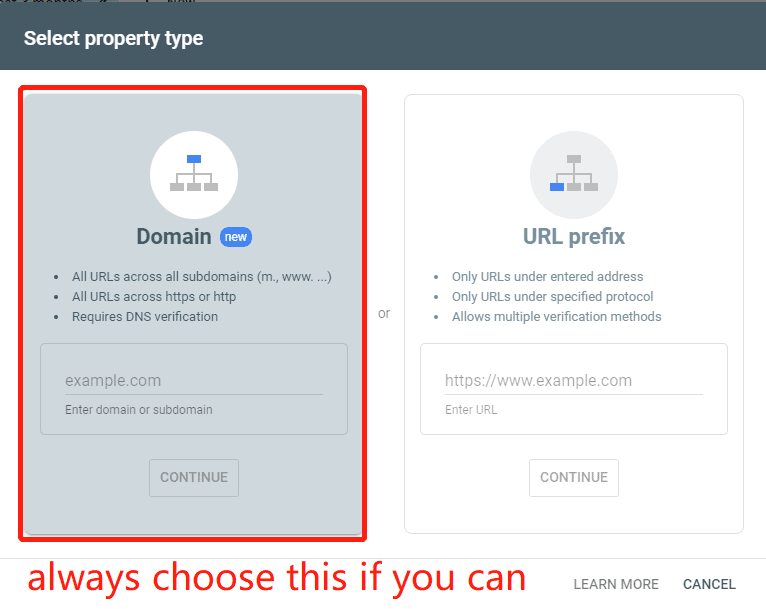
Contents
Why you should always register the domain property with Google Search Console
It tracks all subdomains Google has knowledge of in one place.
This is especially useful to monitor any subdomain that may be crawlable without your knowledge. To list all your crawled subdomains go to Settings > Crawl stats.
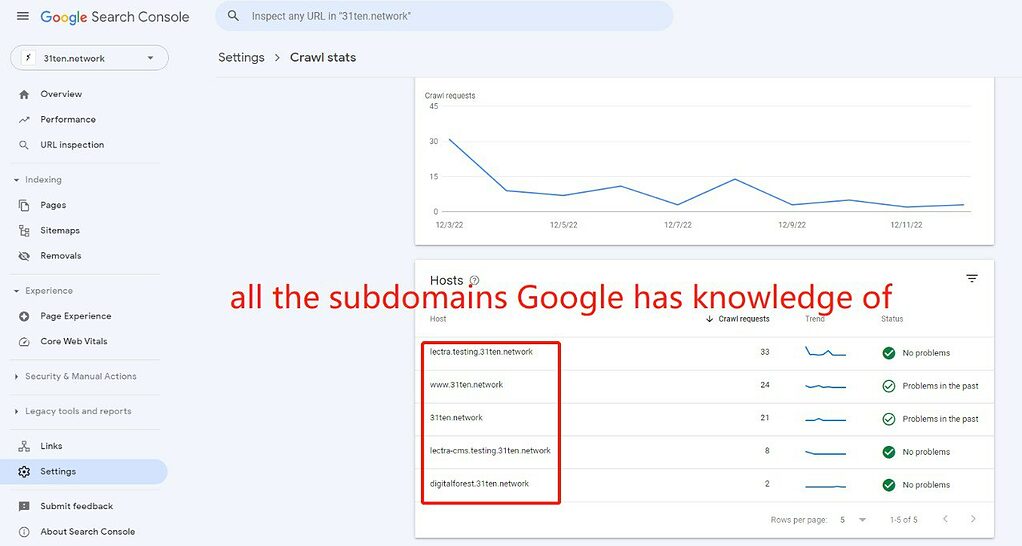
Real-life story: we got spamdexed at Storefront in Q1 2021. What happened is we had an internal project for a product prototype that was hosted on a thestorefront.com subdomain. The project got mothballed, but we kept the server of the prototype live. Without our knowledge, the CMS used for the prototype got hacked because it wasn’t maintained any longer. The hackers used then created a website to leverage our excellent domain authority (DR70 according to Ahrefs), hosting thousands of pages about downloading popular books in PDF format. We noticed the impressions in the search console skyrocketing, but it took us a few weeks to understand where this was coming from. Then we had a look at the list of hosts and realized there was an explosion of crawls of the particular subdomain used for the prototype.
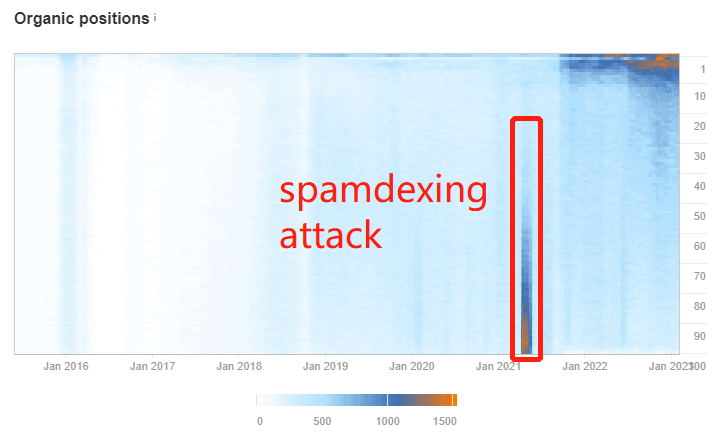
Having registered a domain property, we immediately added the subdomain as a search console sub-property, which allowed us to see the hacked pages ranking. We then shut the server down immediately and stopped the attack.
This brings me to the next advantage of registering the domain property as your top priority: it starts collecting historical data for any subdomain or URL prefix.
It tracks all URLs regardless of subdomain or protocol (HTTP and HTTPS)
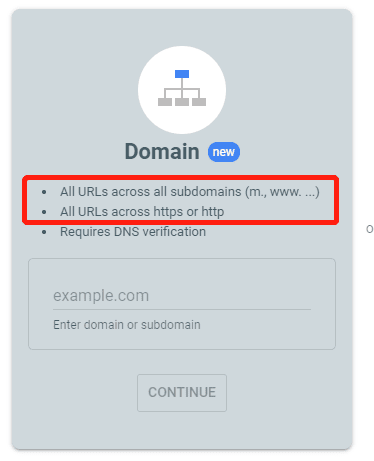
As shown on the GSC property creation prompt, a domain property tracks every page of your domain. Regardless of subdomain (www., beta., api., mobile. etc.) and protocol (HTTP or HTTPS). So it encapsulates the whole coverage of your domain by Google spiders. While a URL prefix property is a filtered subset of that data, narrowed down to a particular subdomain (or just the domain root) and a protocol.
For example, if you only register a URL prefix, you may want to know if Google is crawling and indexing the HTTP version of your website. In case the domain had both HTTP and HTTPS versions without a redirect or switched over to HTTPS recently. Here you will need to register two URL prefix properties:
- http://www.example.com
- https://www.example.com
While if you have the domain property registered, you can just apply a protocol page filter:
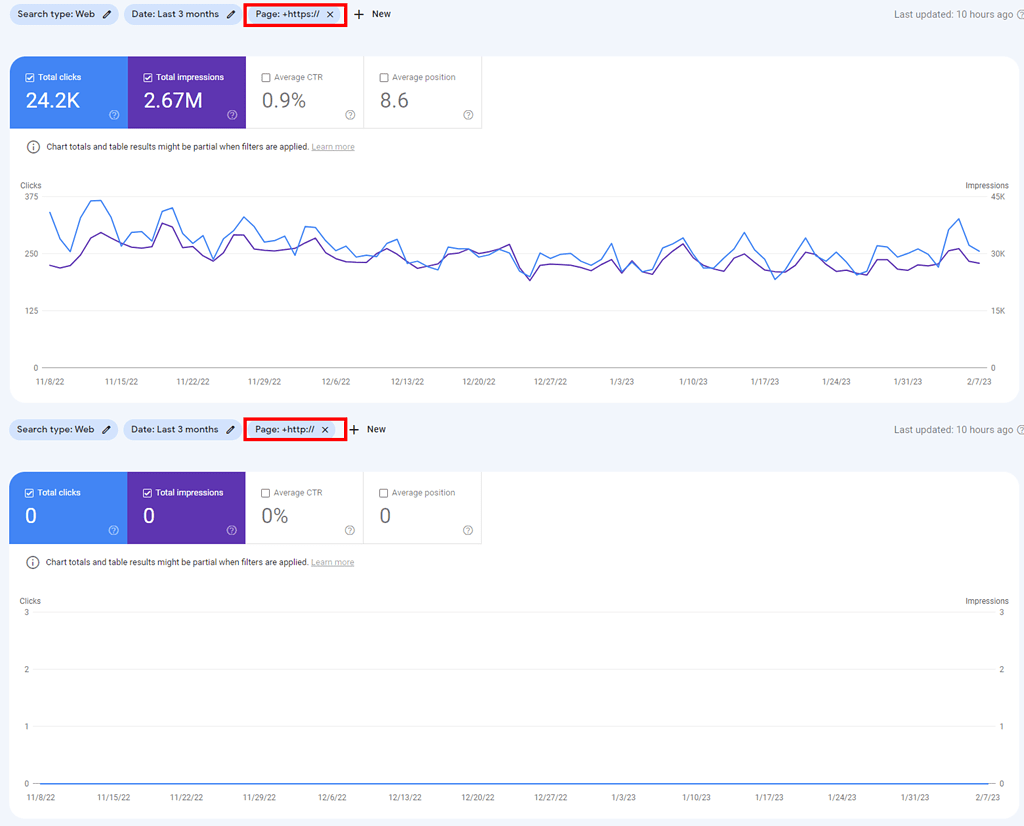
So what’s the point of registering URL prefix properties?
If you have multiple subdomains, you may find it annoying to always apply filters to your search console data. In that case, it’s better to create individual URL prefix properties (on top of the domain property!) to work on a nicely filtered dataset. Let’s say you want to do a data studio chart for just a specific subdomain: it’s faster to pull from the subdomain URL prefix property than to pull from the parent domain property and apply a filter – and data will load much faster!
As an example, here’s how my search console setup looked like for Storefront 😅:
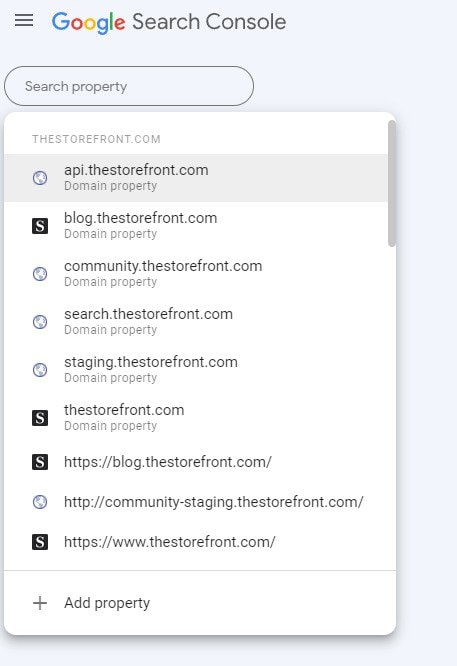
FAQ
Most probably, no. It does not hurt to keep the URL prefix property alongside the domain property. And since you have created the prefix property before the domain one, it will have more historical data. The domain property will only start collecting data from the moment you have created it, it won’t show the historical data that the URL prefix had collected previously.
Here is an example of a domain I purchased recently: the former owner registered the https:// URL prefix property before registering the domain property. You can see the domain property misses any historical data before the end of October 2022. You definitely want to keep the URL prefix property here!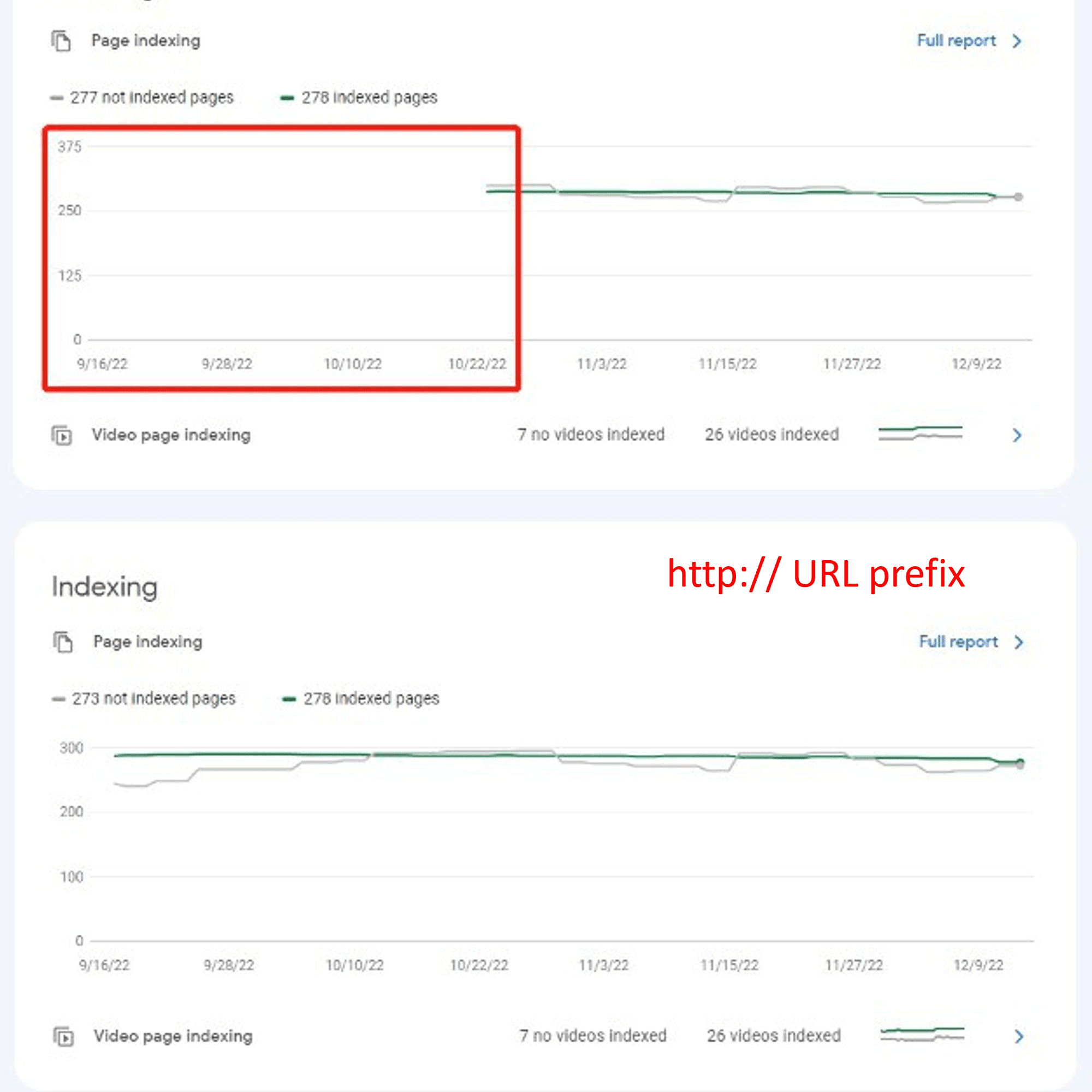
So again, always register the domain property! Adding a DNS TXT record may sound scary, but it’s easier than it sounds. And Google integrates directly with the most popular registrars to make your life easier. And then – and only then – maybe register the URL prefixes you may find useful.
